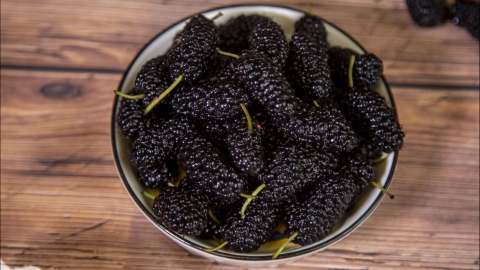Can dried mulberries nourish the liver and improve vision?
Generally, dried mulberries can nourish the liver and improve vision, but excessive consumption is not recommended. Detailed analysis is as follows:

Dried mulberries have a sweet and sour taste and are slightly cold in nature. They act on the liver and kidney meridians, nourishing liver yin and enriching liver blood. By nourishing the liver, they support the production of liver blood, thereby moisturizing the eyes and exerting a beneficial effect on vision. Dried mulberries are rich in anthocyanins, antioxidant substances that reduce free radical damage to retinal cells and help protect retinal structure and function, thus helping to relieve eye fatigue and improve vision. Additionally, they contain vitamin A, an essential nutrient for maintaining eye surface health and promoting retinal photoreceptor development, which can assist in preventing vision problems such as night blindness. Vitamin C promotes collagen synthesis in the eye, supporting normal function of the lens and cornea, complementing the nourishing effects on the liver to further enhance eye health.
Consumption of dried mulberries should be moderated, as excessive intake may irritate the gastrointestinal tract due to its cold nature, causing digestive discomfort. Individuals with spleen and stomach deficiency-cold should consume them cautiously to avoid worsening internal cold symptoms. As a daily food item, dried mulberries offer limited benefits for liver nourishment and vision improvement and cannot replace scientifically sound eye usage habits or medical treatment for liver and eye diseases. If significant vision decline or liver discomfort occurs, timely medical consultation and examination are advised.








